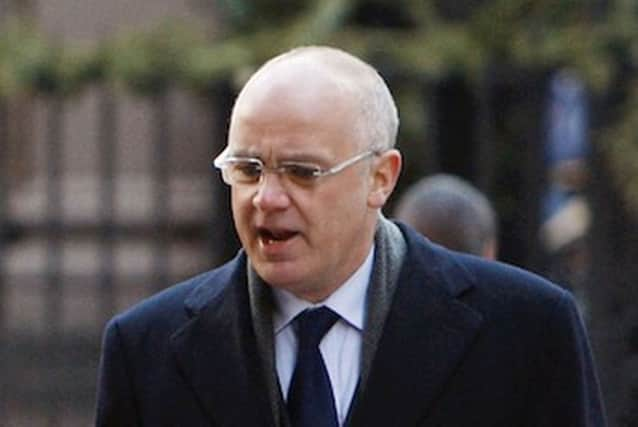Ex-Anglo Irish boss Drumm bailed over fraud charges


The 49-year-old ex-banker was released from custody after spending his first night back in Dublin on Monday in prison following his extradition from the US charged with 33 fraud-related offences.
The one-time CEO left Ireland for Boston in 2009 after Anglo collapsed costing Irish citizens f29bn (£22.4bn).
He is not expected to stand trial for two years.
Advertisement
Hide AdAdvertisement
Hide AdParents-in-law Danny and Georgina Farrell both agreed to the f100,000 independent surety from their joint bank account to satisfy the bail conditions.
Half of it is to be handed to the court and the other half frozen in their bank account.
Both were warned before Dublin District Court that they should track their son-in-law’s movements and contact police immediately if they have any concerns about his whereabouts.
The father of two daughters has also surrendered his passport, will provide a f50,000 (£38,700) cash surety of his own, will sign on twice a day at Balbriggan Garda Station and remain in Ireland as part of the bail terms.
Advertisement
Hide AdAdvertisement
Hide AdHe will live at Shenick Avenue in Skerries, Co Dublin, as he awaits his trial and will appear in court again in April.
Drumm is charged with conspiracy to defraud and false accounting relating to f7.2bn (£5.6bn) deposits placed in Anglo accounts by the then Irish Life and Permanent between March and September 2008.
He faces a maximum sentence of an unlimited jail term if convicted of the conspiracy charge.
Drumm is also charged under the Companies Act over alleged unlawful lending to members of the Quinn family and the so-called Maple 10 investors to unwind a secret 28% shareholding in Anglo built up by tycoon Sean Quinn.
Advertisement
Hide AdAdvertisement
Hide AdThose 16 charges could lead to a maximum sentence of five years.
Drumm is also charged with seven offences under the Companies Act of being privy to falsifying documents which could lead to a maximum five years, and seven offences of creating false documents which could lead to 10.